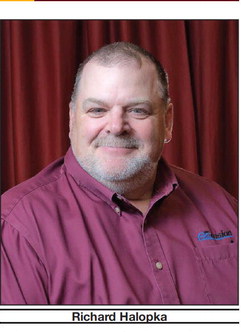Halopka retiring from Extension after 50 years in agriculture


By Valorie Brecht Over his roughly 50 years in agriculture, Richard Halopka has gotten to experience agriculture from many sides, including crop production, dairy nut...


By Valorie Brecht Over his roughly 50 years in agriculture, Richard Halopka has gotten to experience agriculture from many sides, including crop production, dairy nut...